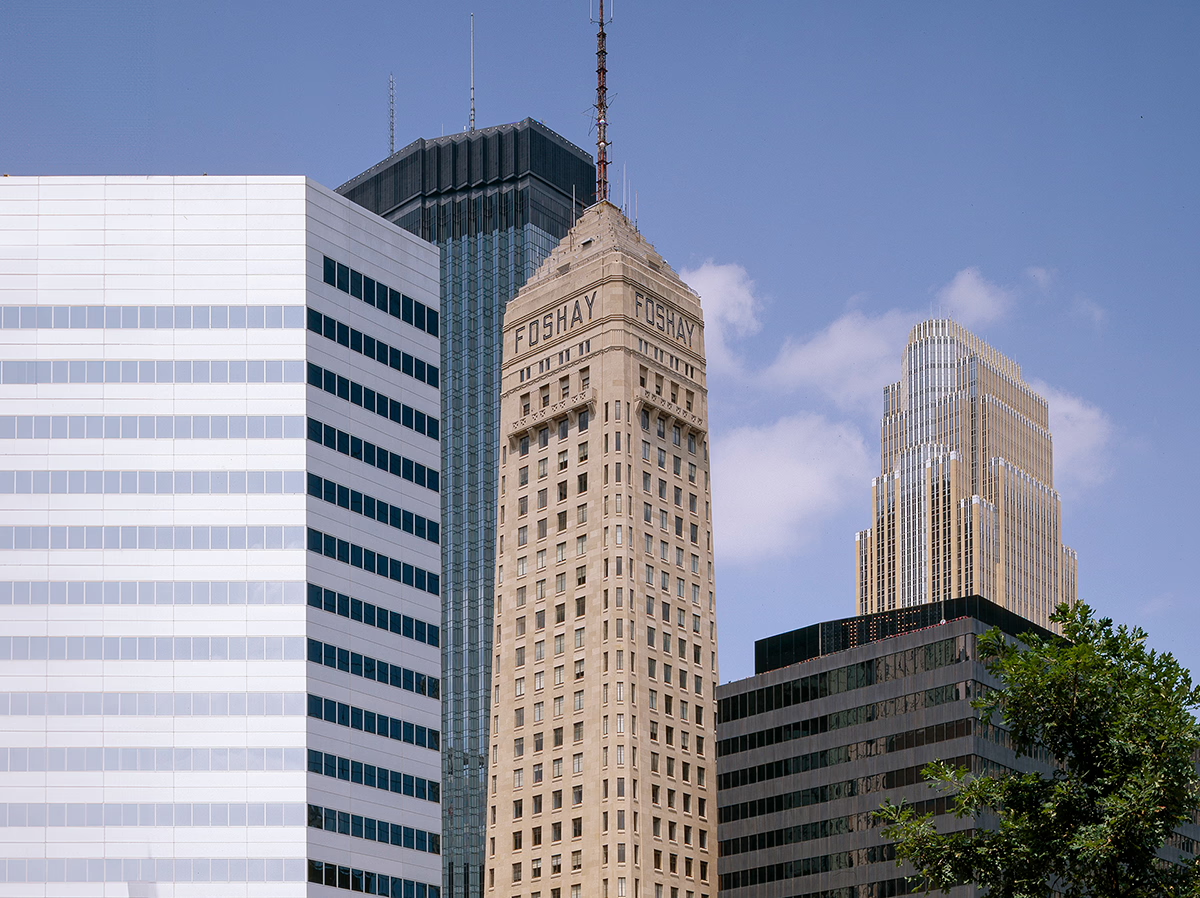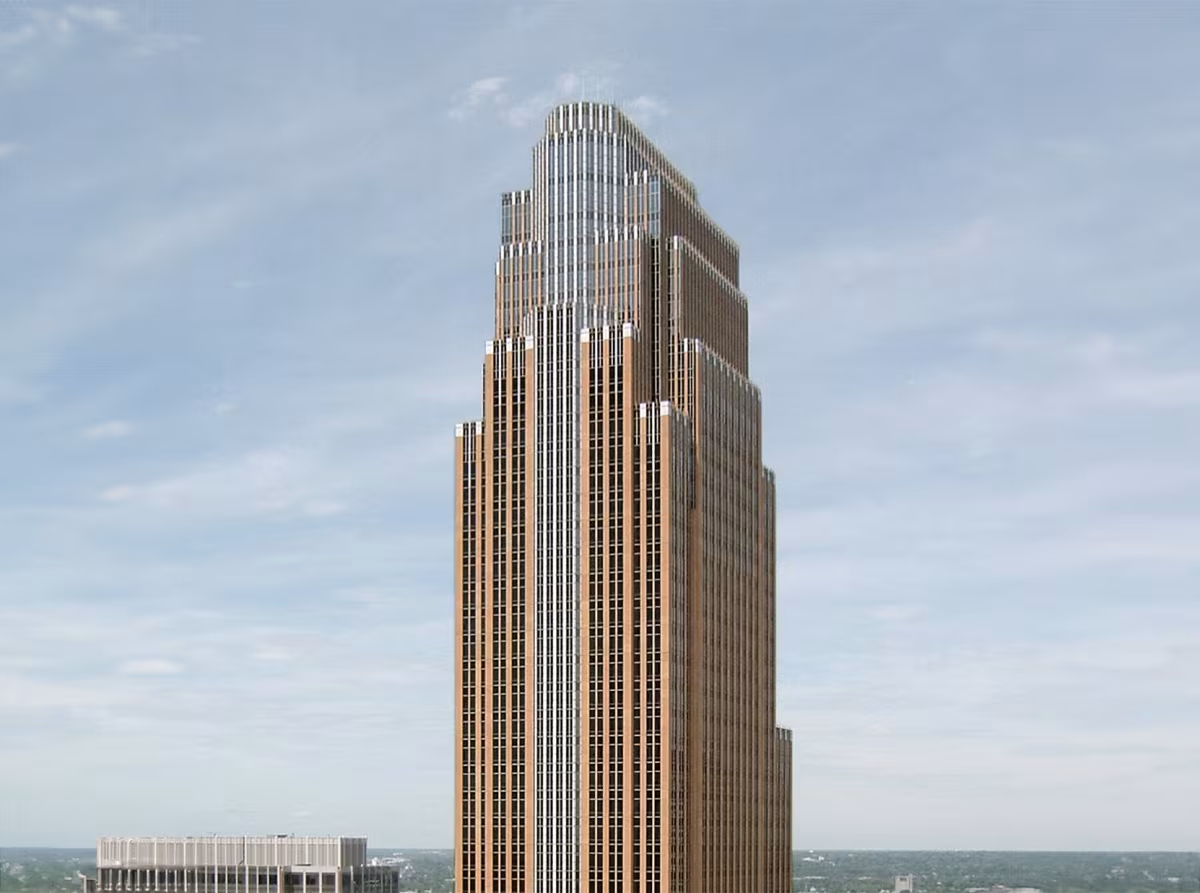Foshay Tower vs Wells Fargo Center


Comparing the Foshay Tower and the Wells Fargo Center is interesting because they both rise in Minneapolis, MN, yet they were conceived by two different design teams, Magney & Tusler Architects and César Pelli & Associates, and were completed at different points in time. They were finished over two decades apart.
This contrast within the same city allows us to see how different creative minds interpreted the evolving needs of Minneapolis across time.
Let's take a closer look!
Height & Size
The Wells Fargo Center is clearly the larger tower of the two, both in terms of height and number of floors. It rises to 774ft (236m) with 57 floors above ground, while the Foshay Tower reaches 446ft (136m) with 32 floors above ground.
Of course, each project may have faced different briefs or regulatory constraints, which we don't really know about and could also explain the outcome.
Architectural Style
Both the Foshay Tower and the Wells Fargo Center were designed in line with the aesthetic conventions of the Art Deco style.
The Wells Fargo Center was designed at a moment when the Art Deco style was already in decline, making it more of a lingering expression of the movement. In contrast, the Foshay Tower was built when the style still carried greater cultural weight.
Uses
The Foshay Tower is primarily hotel, while the Wells Fargo Center is primarily commercial.
Originally, the Foshay Tower was designed for commercial , but over time it was converted to hotel. The Wells Fargo Center by contrast has maintained its original role.
The Foshay Tower incorporates a 4-star hotel with 230 rooms. More information is available at the official website.
Structure & Facade
Both towers share the same structural solution, a Frame system.
A frame structure uses a grid of columns and beams to carry the building's loads. This frees the walls from structural duties, allowing for flexible floor plans and larger windows.
However, when it comes to the facade, both buildings use different approaches. The Foshay Tower uses a Masonry facade, while the Wells Fargo Center uses a Curtain Wall facade.
A Masonry facade like the one seen in the Foshay Tower features a heavy masonry skin that gives it a more clasical look, while a curtain-wall facade like the one seen in the Wells Fargo Center uses a lightweight glass curtain wall hung from the structure.
| Foshay Tower | Wells Fargo Center | |
|---|---|---|
| Magney & Tusler Architects | Architect | César Pelli & Associates |
| 1927 | Construction Started | 1986 |
| 1929 | Year Completed | 1988 |
| Art Deco | Architectural Style | Art Deco |
| Hotel | Current Use | Commercial |
| 32 | Floors Above Ground | 57 |
| 136 m | Height (m) | 236 m |
| 4 | Number of Elevators | 27 |
| Frame | Structure Type | Frame |
| Steel | Vertical Structure Material | Steel And Concrete |
| Concrete | Horizontal Structure Material | Reinforced Concrete |
| No | Facade Structural? | No |
| Limestone | Main Facade Material | Glass, Stone, Steel |
| Wilbur Burton Foshay | Developer | Hines Interests Limited Partnership |
| MN | State | MN |
| Minneapolis | City | Minneapolis |
| 821 Marquette Avenue | Address | 90 South Seventh Street |